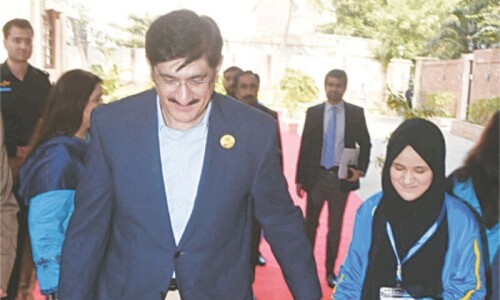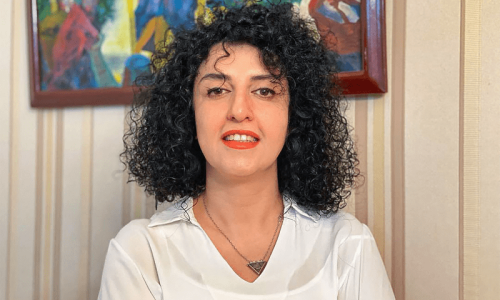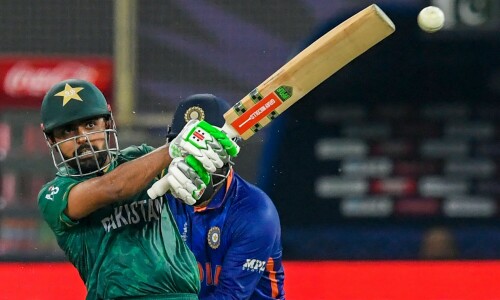KARACHI: In the absence of any alternative livelihood opportunities for fishermen, fishing is likely to continue in the seasonal banned period of June and July this year, background interviews with stakeholders in the fisheries sector showed on Saturday.
It is important to recall here that fishermen have been complaining of a significant decline in fishery resources for the past many years. A major component of the catch relates to shrimps whose catch, according to multiple studies, has dramatically reduced.
The situation, experts suggest, has developed mainly because of three factors — rampant use of harmful nets that catch even the juvenile species, large-size of fishing fleet and continued fishing the whole year.
However, there has been no serious effort on the part of the Sindh government to address these issues for decades.
“The results of this negligence are obvious. Sustainable fishing demands that annually, for a period of time, fishing should be closed in order to encourage growth of certain species. In our case, this has never happened,” said World Wide Fund for Nature-Pakistan (WWF-P) technical adviser on marine resources Mohammad Moazzam Khan.
He was referring to the fishing ban the government imposes yearly on catch of shrimp and some freshwater fishes under the Sindh Fisheries Ordinance 1980. The ban is later relaxed to only one (July) month on what the government says is a ‘fishermen’s demand’, but even in that period fishing continues in some areas.
The two-month fishing ban (between June and July) as proposed by experts could only be implemented only once in three decades, he said.
Citing a study, he said that there had been a 70 per cent decline in the catch of large-sized shrimp over the past four decades while the landing of colossal-sized shrimp had reduced to almost zero.
The catch of white shrimp (jaira), he said, had declined from 15 tonnes to one tonne per year per boat in four decades whereas the catch of pink prawn (kalri) and salad shrimp (kiddi) had declined from nine tonnes and five tonnes to two to three tonnes per year per boat during the same period, respectively.
“The continued shrimp trawling in the banned period is an insult to what marine experts and scientists had proved years ago that shrimp fishing should be banned for at least two months to help the species get mature,” he pointed out.
If the government was persistently failing in implementing a single ban on shrimp catch what other sustainable fishing measures could be expected of it, he added.
He also gave examples of countries where there was a ban of much longer periods on shrimp fishing. For instance, he said, fishing for shrimp was allowed only for 45 days in a year in Iran while two to three months of ban was imposed in most states of India in addition to other strict management measures.
Seconding his opinion, Prof Zarrien Ayub, senior teacher at Karachi University’s Centre for Excellence in Marine Biology, said that studies on the spawning and recruitment stages (that are very much depended on temperature) of different fish and shrimp species had continued till to date and all had shown that the best time to encourage growth of fish and shrimp was to stop fishing from May to July.
“There may be a little variation in the spawning and recruitment stage of different species, but generally a number of fish and shrimp species are sub-adults during the time between May and July. They need more time to get mature,” she said.
Giving fishermen’s perspective on the issue, seasoned fisherman Taj Mohammad said members of his community would support the ban if the government provided alternative livelihood opportunities to them during the banned period.
“There is no doubt that the catch, including that of shrimp, has greatly declined. But, there is no one to support us. The government is only interested in making money and so is the Fishermen Cooperative Society,” he said.
Conversations with government and FCS officials showed lack of interest on both sides in seriously addressing the issue of declining catch.
Sindh Fisheries Department Director General Ghulam Mohammad Mehar said: “Although the government is encouraging fishermen to take up crab fattening and also providing shrimp seed, it is the mandate of the FCS to work for fishermen’s welfare.”
FCS chairman Dr Nisar Morai, who has recently held a meeting with fishermen and asked the government to impose only one month fishing ban this year, said that it was the government’s responsibility to ensure that the ban was fully observed.
“Given the high level of poverty prevailing in fishing communities, we have demanded a month-long ban. The major reason I believe for the depleting catch is the use of small-mesh sized nets that the government has banned but are being openly used,” he said, adding that he had taken over as FCS chief only three months ago and as time progressed he would take initiatives to resolve issues plaguing the fisheries sector.
Published in Dawn, May 18th, 2014















































Dear visitor, the comments section is undergoing an overhaul and will return soon.